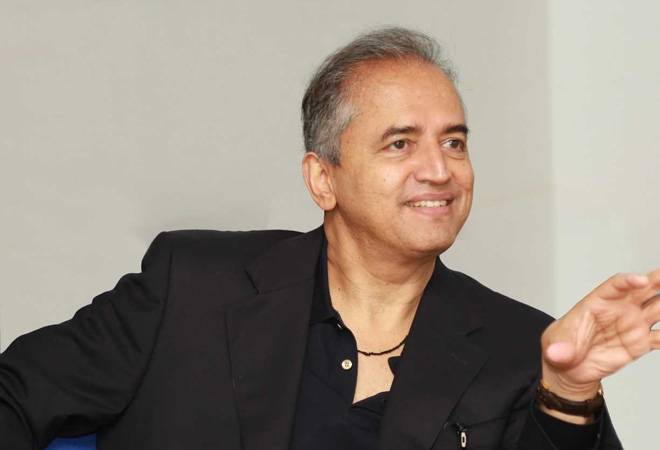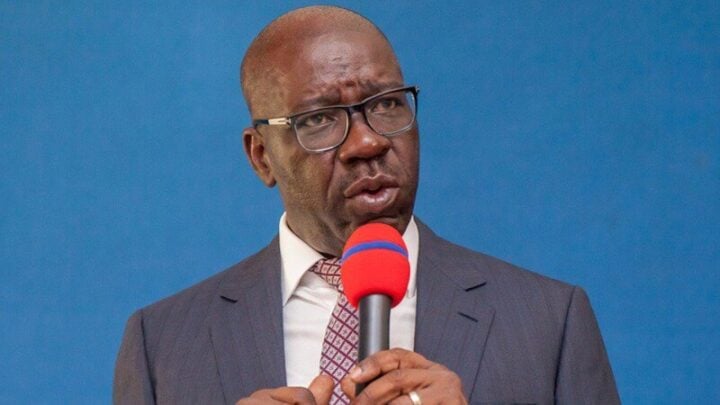File photo of Nigerian youths in a gathering
I had the privilege of speaking with a group of young people before the COVID -19 era under the auspices of Development and Leadership Institute (DLI) Fireside Talk. Our conversation centred on how they spend their lives daily. It was to enable me to get an insight into their plan for the future and our society’s expectations from the next generation of leaders. If asked to suggest a title for the fireside chat, I will call it : Lamentations of Frustrated Nigerian Youths”.
For example, Musa is a third child in a family of five and a graduate of a second generation Nigerian university. He graduated 10 years ago with a degree in Engineering and had the hope of securing a job in an oil and gas company. Since his graduation, he has attended only three job interviews without any success.
Within the period, he procured a loan of N100, 000 to set up a mini- bakery. Unfortunately, this bakery was closed down by the Local Government Authority in his neighbourhood on account of his inability to pay some operational permits. He subsequently became an Uber driver using a car owned by his former classmate but lost it when the owner lost his own job and decided to become the Uber driver himself.
Now, Musa is unemployed, hopelessly idle and increasingly frustrated.
Advertisement
Apart from Musa, there are others with a similar pathetic stories. Ikenda is Musa’s friend, and they spend much time together. He graduated eight years ago from another Nigerian university with a hope of getting employment so he could help his siblings in their education. Unfortunately, Ikenda has not attended a single job interview after submitting over 40 applications. He started a farm but lost all his chickens in one fell swoop to a strange bird flu that attacked his poultry. The business was uninsured as he did not have money for an insurance policy and after the death of the birds, he could not access micro-credit to start all over.
Sadly, Ikenda told me he had considered engaging in illegal oil bunkering at various times because he has not seen anybody severely punished for that. Ikenda has a firm conviction that the youths of Nigeria have no future, especially as politicians are rich in promises but barren in fulfilment.
The stories of these two young men are just a tip of the iceberg when compared with the stories of severe hopelessness caused by the failure of our system and governance told by young people. The average Nigerian youth faces multiple challenges that make crime attractive. According to UNESCO statistics on Nigeria, growing up with the chances of getting enrolled in primary school is 65% for boys and 59% for girls; for secondary school, it is 51% for boys and 46% for girls.
Advertisement
When the Nigerian child surmounts the numerous challenges that tend to stop him or her from going to school, he or she still faces the hurdle of the quality of education he or she gets. The fate of youths who did not get the opportunity to have any education is even hard to imagine. They are outsiders to society and often strive to thrive at the fringes of our collective existence.
A critical look at the quality of instruction, quality of infrastructure, learning environment, the output of the system measured by external assessment, and quality of content and process, reveals that everything seems skewed towards producing graduates who cannot cope with a fast-changing world, are hardly employable and not trained to create jobs.
After managing to go through school, youths confront the challenge of unemployment. Nigeria’s 23% unemployment rate in 2019, (projected to be 33.5% pre-COVID 19 by 2020), is one of the highest in the world (estimated 60 million unemployed or underemployed persons). The implication is that one of three Nigerians who is ready to work cannot find a job or a suitable job and this leaves young people with the frightening options of crime, moral debasement, depression and for some who could afford to raise the money, emigration at considerable risk. Consequently, hopelessness, fear, anxiety and frustration set in.
Unfortunately, by reasons of a combination of factors, the youths are excluded from key decision-making points and process of government and are not able to address issues of top priority to them. Nigeria has one of the highest youth populations globally, but this is not reflected in elective offices or appointments. The Africa Report puts the average age of Nigeria’s cabinet ministers at 60 with no single minister below 40. This underrepresentation of youths in governance partially accounts for the disconnection between policy decisions and youth issues and aspirations.
Advertisement
With no employment and shrinking opportunities to participate in governance, many youths would have loved to turn to entrepreneurship. However, there are no institutional or policy instruments to support them. Lack of access to capital, challenging and hostile economic environment, lack of infrastructure, particularly electricity and colonial-style education that is not pro-entrepreneurship are some of the barriers that stifle Nigerian youths from expressing their passions for entrepreneurship. Some organisations like Fate Foundation and Tony Elumelu Foundation have strived to provide training and opportunities for youth development but even their best efforts would only make minimal impact on the ongoing tragedy of the Nigerian Youth who is incapable of realising his or her entrepreneurial potential.
One bold move that the government has made in recent times to boost entrepreneurship (with a potential for catalytic effect) is the establishment of the N75 billion Nigerian Youth Investment Fund (NYIF). The fund provides a single-window investment fund for youths aged between 18-35 years, thereby creating a typical basket for many Nigerian youths to access government funding support for innovative entrepreneurs. It also provides less cumbersome access to credit and finance for the average Nigerian youth, potentially giving birth to a generation of entrepreneurs and lifting thousands if not millions of youths out of poverty.
Beyond the difficulties in acquiring education, unemployment, and lack of support for entrepreneurship culture confronting our youths, the world is in transition to the 4th revolution (the knowledge economy) which would be driven by information technology. Only those prepared for this new digital age will fit into a globalised society. In the absence of ICT skill, a coherent ICT deepening plan and the will to execute the plan, Nigeria is virtually mortgaging the future of her youths and consequently creating many crises for the future.
Research ICT Africa, a South African-based think-tank, found that while internet penetration in Nigeria is high, computer penetration is limited with 58% of web-based traffic being via a handset. The think tank discovered that a higher percentage of Nigerian youths, other than social media activities, are lacking in ICT skill for education , innovation and economic empowerment.
Advertisement
One of the most significant challenges facing the Nigerian youth is the lack of role models that can inspire them. Without role models, youth’s breadth of vision will be severed, obliterating their brightest and highest points. The Nigerian news and social media space are awash with stories of unpunished government corruption, venerable militancy, impunity, and celebrity fraudsters and the youths are almost becoming narcotised psychologically, leaving majority of them with the impression that these criminal and evil acts are acceptable in the society. The consequence of this is a far-reaching psychological impact on their mind-sets and determination to succeed on lawful endeavours.
Nigerian youths are an endangered species, and by implication, the future of Nigerian society is bleak. The current elite class has not shown the mental or patriotic flavor to secure the future beyond rhetorics and pass the baton to future ready youths. Government has the task to create the environment in which investment can massively take place .Such investment will take off most unemployed youth. With entrepreneurship in our education curriculum, those who cannot find job will have skill to work for themselves. Today we are getting the youth that our culture of insensitivity has created. All that the youths are demanding is the opportunity for quality education, expression of their potentials in diverse areas, and contribution to nation-building. Indeed, the youths are without hope, and this should alarm right-thinking members of society, and the government needs to act decisively. Time has come for a severe intervention in our youth crisis .
Advertisement
Views expressed by contributors are strictly personal and not of TheCable.
Add a comment







